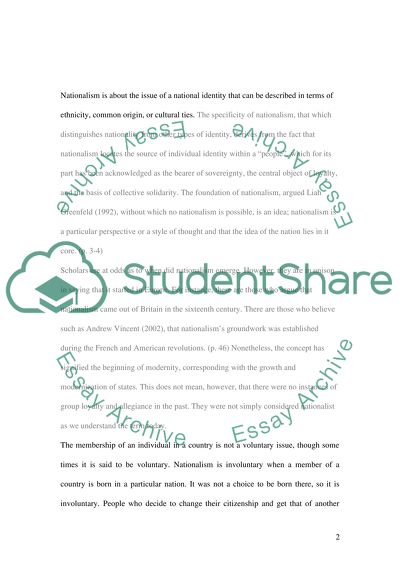Cite this document
(Nations and Nationalism Essay Example | Topics and Well Written Essays - 2250 words, n.d.)
Nations and Nationalism Essay Example | Topics and Well Written Essays - 2250 words. Retrieved from https://studentshare.org/politics/1543965-is-nationalism-best-understood-as-a-rational-phenomenon
Nations and Nationalism Essay Example | Topics and Well Written Essays - 2250 words. Retrieved from https://studentshare.org/politics/1543965-is-nationalism-best-understood-as-a-rational-phenomenon
(Nations and Nationalism Essay Example | Topics and Well Written Essays - 2250 Words)
Nations and Nationalism Essay Example | Topics and Well Written Essays - 2250 Words. https://studentshare.org/politics/1543965-is-nationalism-best-understood-as-a-rational-phenomenon.
Nations and Nationalism Essay Example | Topics and Well Written Essays - 2250 Words. https://studentshare.org/politics/1543965-is-nationalism-best-understood-as-a-rational-phenomenon.
“Nations and Nationalism Essay Example | Topics and Well Written Essays - 2250 Words”. https://studentshare.org/politics/1543965-is-nationalism-best-understood-as-a-rational-phenomenon.


